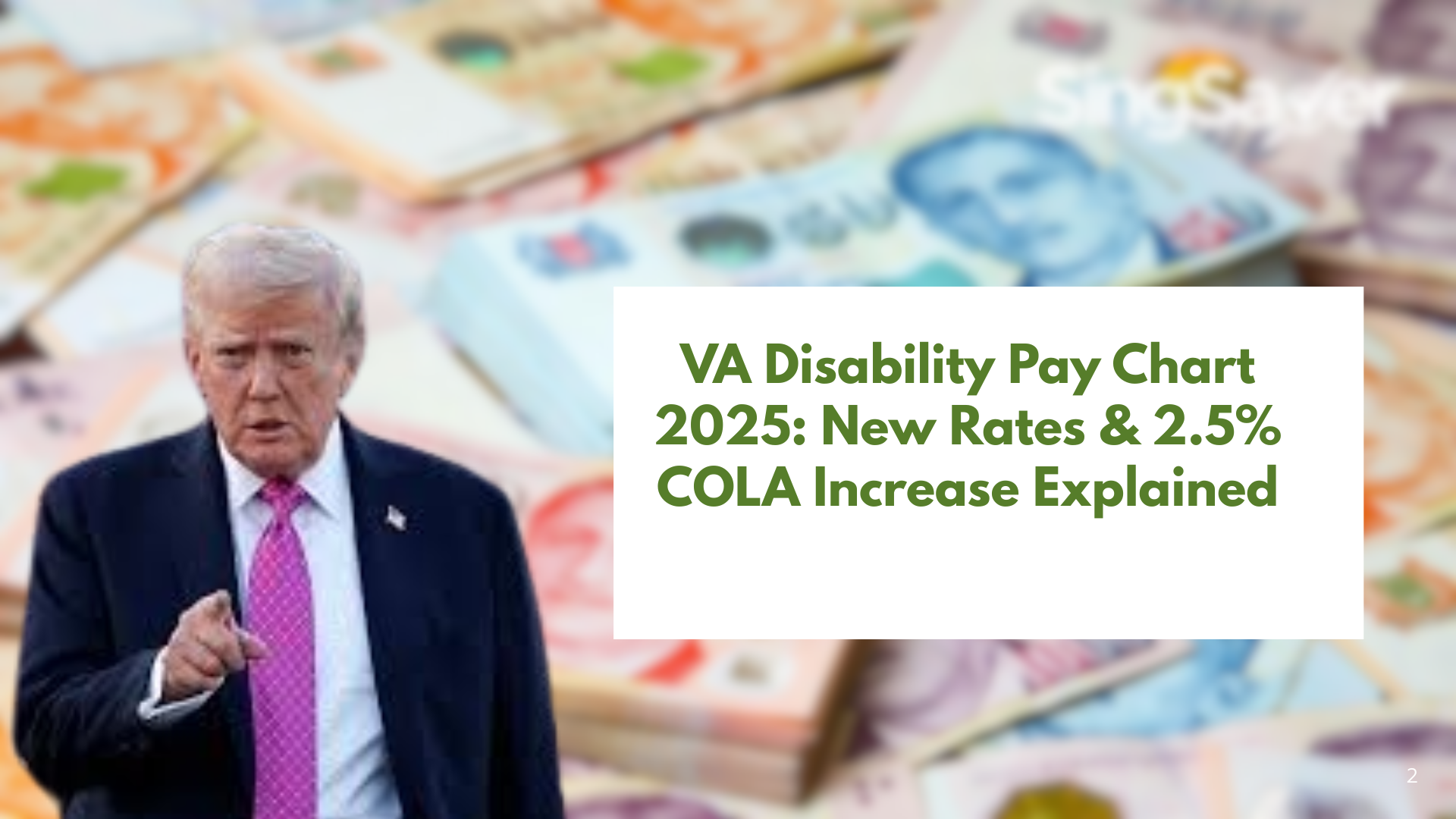The VA Disability Pay Chart 2025 has been updated, bringing good news for U.S. veterans. Starting December 1, 2025, a 2.5% cost-of-living adjustment (COLA) will be applied to disability payments. This ensures that monthly benefits keep pace with inflation and rising living costs.
For many veterans who depend on these payments for daily expenses, healthcare, and family support, this update provides much-needed financial relief. Whether you are checking your existing VA benefits or applying for the first time, it is important to understand the new pay chart and how it impacts you.
What Is The VA Disability Compensation Program
The VA Disability Compensation Program is a tax-free monthly payment provided to veterans with service-connected injuries or illnesses. These payments help veterans who suffer from physical or mental conditions caused or worsened during active military service.
The program ensures that veterans receive financial support based on the severity of their condition, allowing them to focus on health, rehabilitation, and family needs.
How Disability Ratings Work
The Department of Veterans Affairs (VA) assigns a disability rating from 0% to 100% in 10% increments.
- A higher percentage reflects a more serious disability.
- The monthly payment increases with the rating.
- Ratings are based on medical evidence, service records, and examinations.
This structured system ensures fair compensation according to the impact of the veteran’s condition on daily life.
Common Conditions Covered Under VA Disability
Some of the most common service-related conditions include:
- Post-Traumatic Stress Disorder (PTSD)
- Hearing loss and tinnitus
- Chronic back or joint pain
- Traumatic brain injuries (TBI)
- Cardiovascular or respiratory conditions
- Mobility impairments or amputations
Each condition is carefully evaluated to determine an accurate rating and appropriate monthly payment.
Understanding The VA Disability Pay Chart 2025
The 2025 VA Disability Pay Chart reflects a 2.5% COLA increase, which will apply to December 2025 payments and appear in January 2026.
The COLA adjustment ensures that veterans’ benefits keep up with inflation and that families can continue to meet everyday living costs, including housing, healthcare, and transportation.
Why The COLA Adjustment Matters
Even a small increase like 2.5% can make a significant difference for veterans who rely on these payments.
- Protects financial stability during inflation
- Helps cover essential living expenses
- Supports veterans who cannot work due to service-connected disabilities
- The COLA adjustment ensures that veterans maintain purchasing power and can provide for their dependents.
Monthly Support For Disabled Veterans
VA disability payments provide a lifeline for veterans and their families. They help cover:
- Medical and mental health treatment costs
- Rehabilitation and therapy expenses
- Family care, including spouses, children, and dependent parents
- Daily living expenses such as food, housing, and utilities
These payments help veterans live with dignity and independence despite their service-related injuries or illnesses.
2025 VA Disability Payment Amounts (Updated Chart)
Here are some updated monthly payments after the 2.5% COLA increase:
10%–20% Disability (No Dependents)
| Disability | Monthly Payment (USD) |
|---|---|
| 10% | $175.51 |
| 20% | $346.95 |
30%–60% Disability (With Children)
| Dependents | 30% | 40% | 50% | 60% |
|---|---|---|---|---|
| Veteran + 1 child | 579.42 | 831.16 | 1173.04 | 1480.93 |
| Veteran + 1 child + spouse | 648.42 | 922.16 | 1287.04 | 1617.93 |
| Veteran + 1 child + spouse + 1 parent | 699.42 | 990.16 | 1372.04 | 1719.93 |
| Veteran + 1 child + spouse + 2 parents | 750.42 | 1058.16 | 1457.04 | 1821.93 |
| Veteran + 1 child + 1 parent | 630.42 | 899.16 | 1258.04 | 1582.93 |
| Veteran + 1 child + 2 parents | 681.42 | 967.16 | 1343.04 | 1684.93 |
Example Calculation of 2.5% COLA
If a veteran received $1,000 per month in 2024, the 2.5% increase adds $25, making the new payment $1,025 per month starting January 2026.
Even small increases like this help veterans handle rising costs of living.
Key Benefits of the 2025 VA Disability Program
- Financial Security – Provides steady, tax-free income for veterans unable to work.
- Family Support – Additional benefits for dependents like spouses, children, and parents.
- Healthcare Coverage – Helps cover medical treatments, prosthetics, and therapy costs.
- Recognition of Service – Acknowledges veterans’ sacrifices and contributions to the nation.
How To Apply For VA Disability Benefits
Step 1: Gather Documents
- Military service records
- Medical evidence linking condition to service
- Disability claim form (VA Form 21-526EZ)
Step 2: File Your Claim
- Apply online at VA.gov
- Visit the nearest VA regional office
- Mail completed forms to the VA Claims Intake Center
Step 3: Wait For Review
The VA evaluates evidence and assigns a disability rating.
Step 4: Track Your Claim
Check status online anytime using the VA portal.
Step 5: Consult a VSO
Veteran Service Officers help with documentation, appeals, and guidance.
FAQs
When do the new VA disability pay rates take effect?
The new rates are effective December 1, 2025, and will appear in January 2026 payments.
Do dependents qualify for VA disability benefits?
Yes. Eligible spouses, children, and dependent parents may receive additional compensation.
How can veterans check their claim status?
Veterans can track their claims at www.va.gov.
Are VA disability payments taxable?
No. These payments are completely tax-free.
Can veterans appeal their disability rating?
Yes. Veterans can appeal if they believe the assigned rating does not reflect their condition.
Conclusion
The VA Disability Pay Chart 2025 ensures that veterans continue to receive fair, inflation-adjusted payments. The 2.5% COLA increase helps protect financial stability, support families, and provide access to healthcare and rehabilitation.
Staying informed, filing claims correctly, and understanding your benefits ensures that veterans and their dependents receive the support they deserve.

